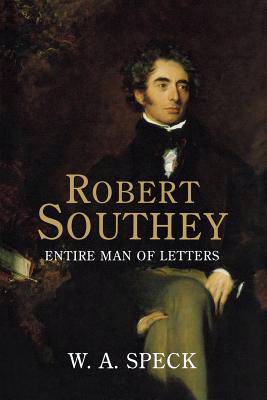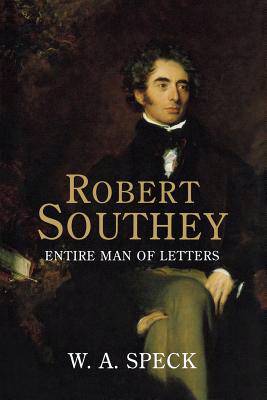
- Afhalen na 1 uur in een winkel met voorraad
- Gratis thuislevering in België vanaf € 30
- Ruim aanbod met 7 miljoen producten
- Afhalen na 1 uur in een winkel met voorraad
- Gratis thuislevering in België vanaf € 30
- Ruim aanbod met 7 miljoen producten
Zoeken
€ 74,95
+ 149 punten
Omschrijving
In his lifetime Robert Southey was very much the equal of his fellow 'Lake poets', Coleridge and Wordsworth. But since his death his reputation has been overshadowed by their success. In this new biography W. A. Speck argues that if Southey's poetry is no longer considered as significant, his other writings were more salient and his political views far more influential than those of his fellow poets. He was, as Byron conceded, England's 'only existing entire man of letters'. The book engages with Southey's voluminous publications, weaving discussion of them into the narrative of his life. It shows how he moved from self-confessed republican and admirer of the French Revolution in the 1790s, to 'the most powerful literary supporter of the tories' by the 1820s. It shows how, unhappy in his personal life, Southey sought intellectual and emotional fulfillment outside his tepid marriage, first from Mary Barker, and then from Caroline Bowles who became his second wife. Speck has explored Southey's full correspondence, not simply that which appeared in the editions edited by his descendants, and the letters reveal a man of considerably greater emotional complexity than previously assumed. This is the first fully rounded life for sixty years, setting Southey in historical context and restoring him to the map of English literature. 'an excellent piece of scholarship ... lively, entertaining and meticulously researched. Clearly the best biography of Southey ever written.' Lynda Pratt, University of Nottingham. W. A. Speck has been professor of history at the universities of Hull and Leeds. He is an established author in eighteenth-century English literature.
Specificaties
Betrokkenen
- Auteur(s):
- Uitgeverij:
Inhoud
- Aantal bladzijden:
- 336
- Taal:
- Engels
Eigenschappen
- Productcode (EAN):
- 9780300197679
- Verschijningsdatum:
- 30/05/2006
- Uitvoering:
- Paperback
- Formaat:
- Trade paperback (VS)
- Afmetingen:
- 156 mm x 234 mm
- Gewicht:
- 480 g

Alleen bij Standaard Boekhandel
+ 149 punten op je klantenkaart van Standaard Boekhandel
Beoordelingen
We publiceren alleen reviews die voldoen aan de voorwaarden voor reviews. Bekijk onze voorwaarden voor reviews.











